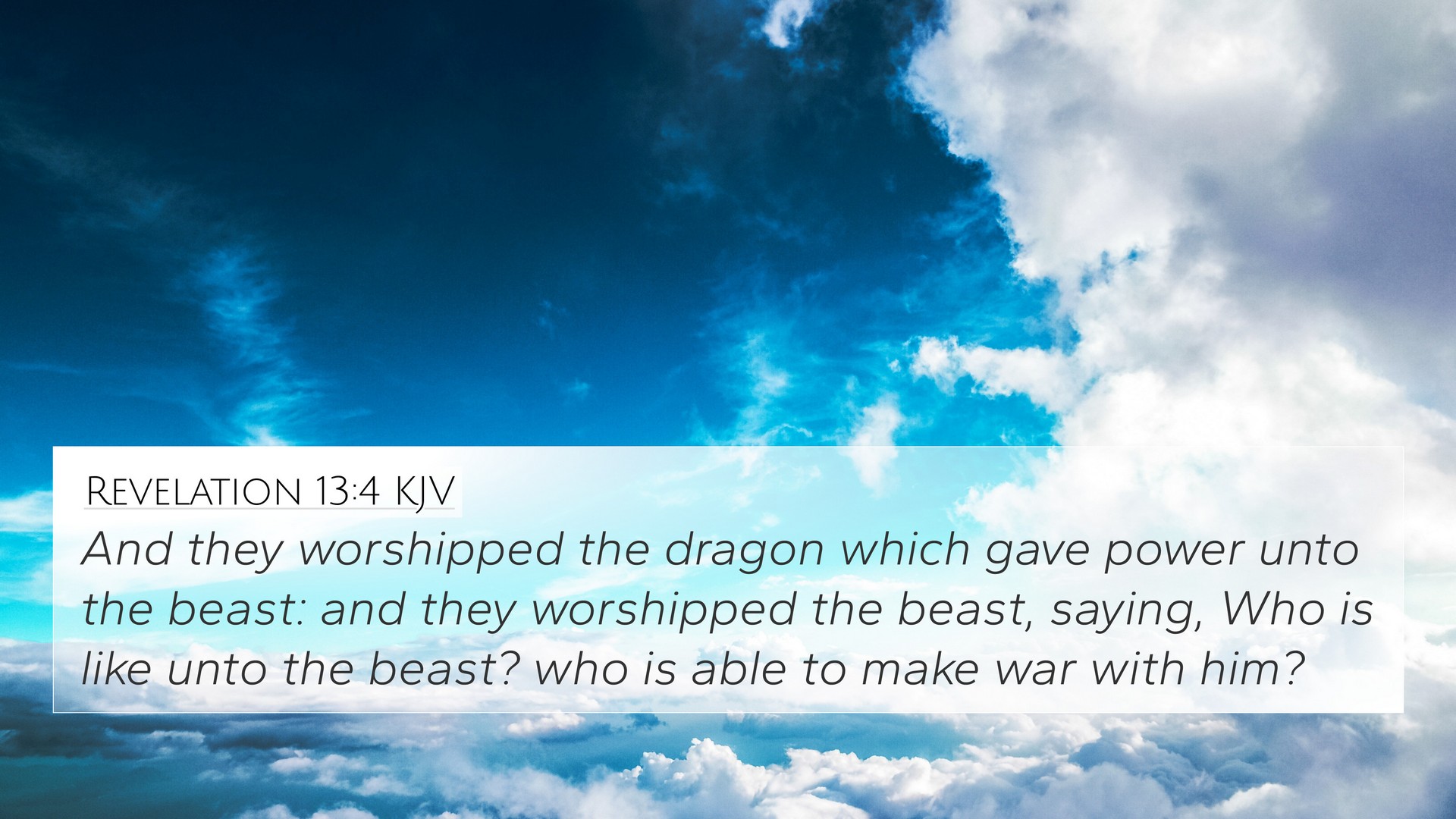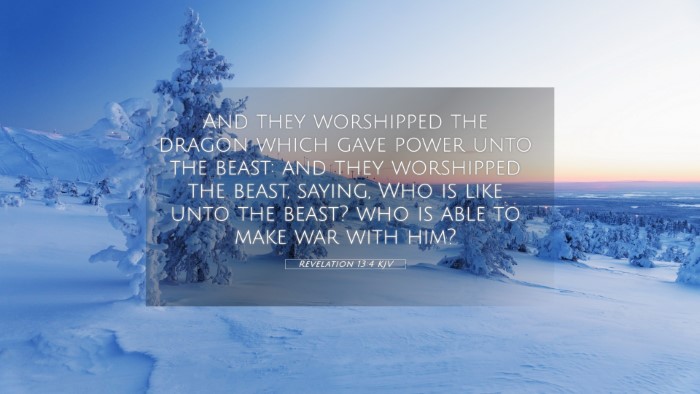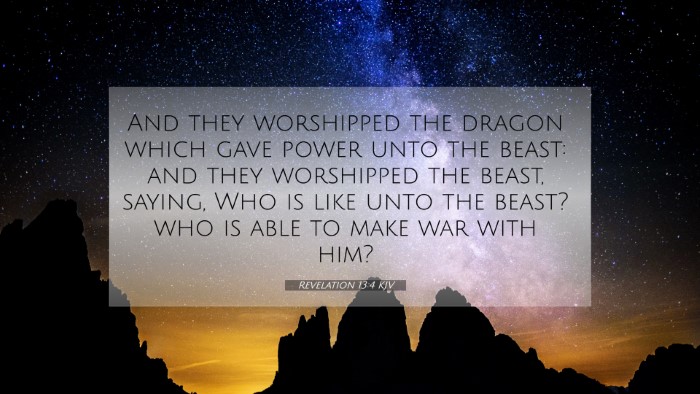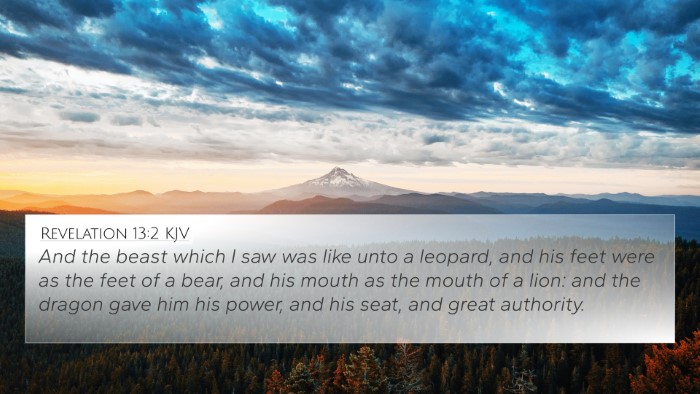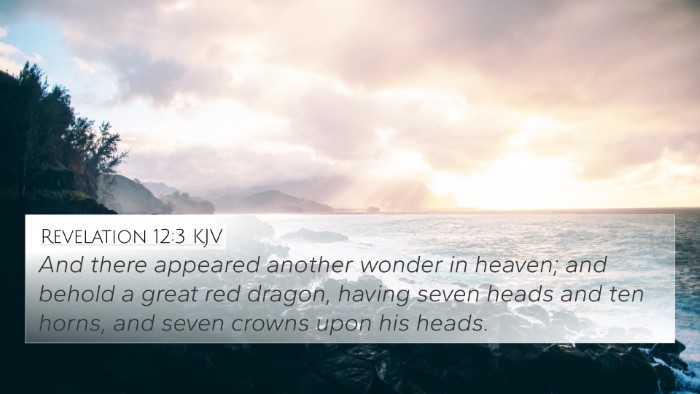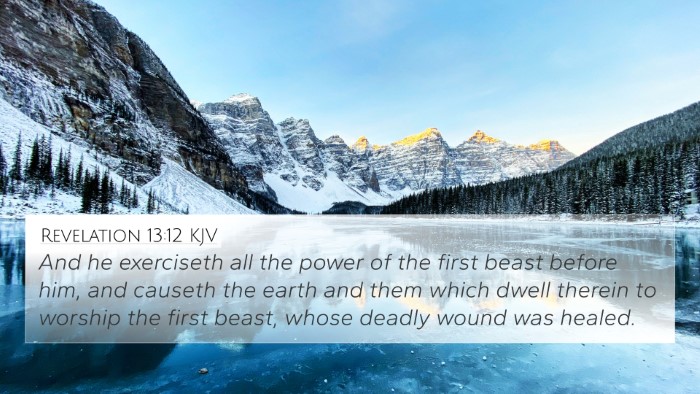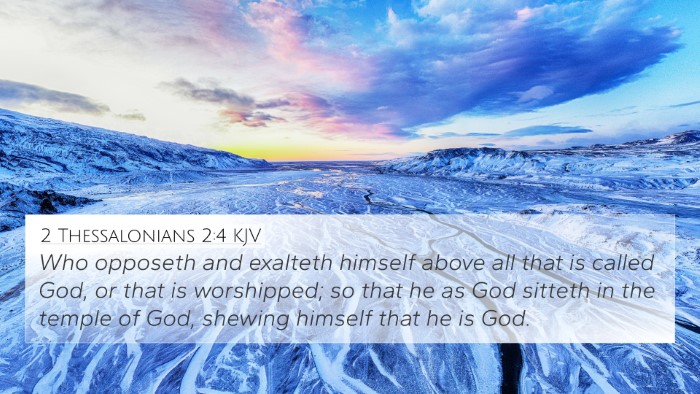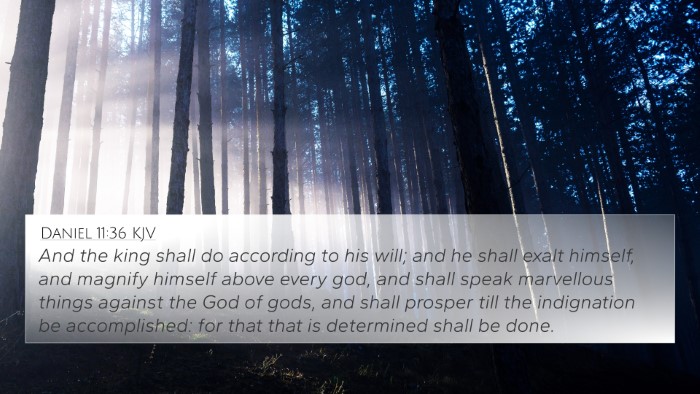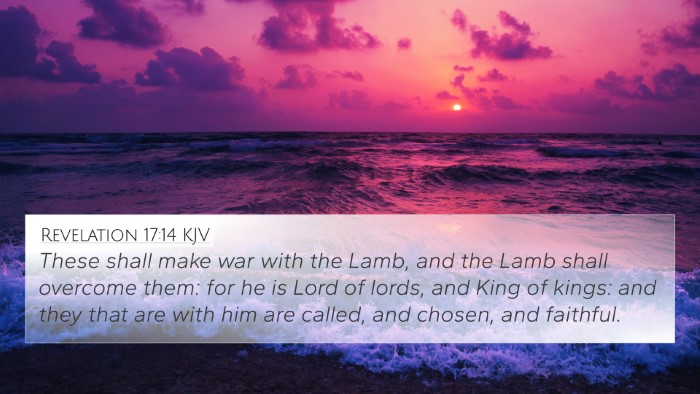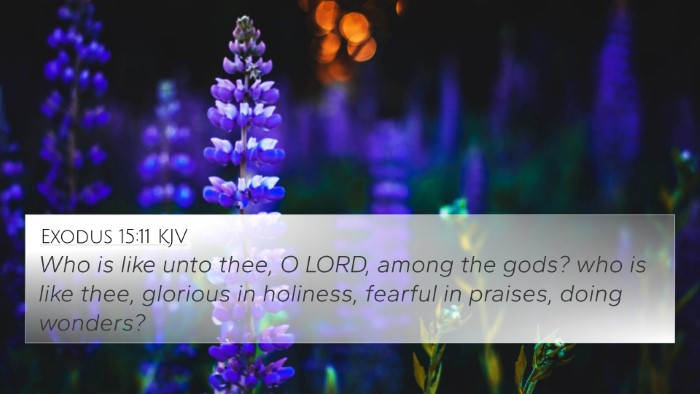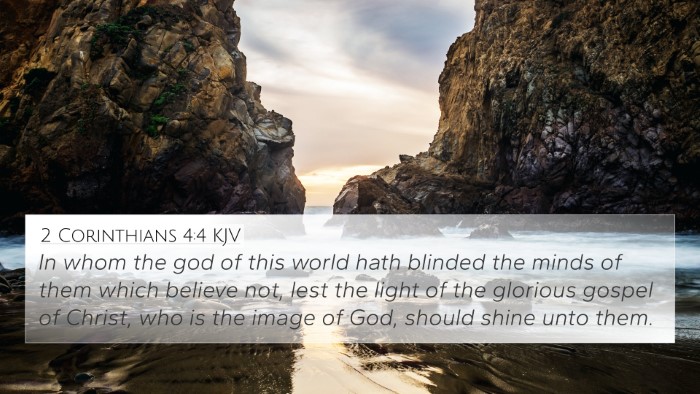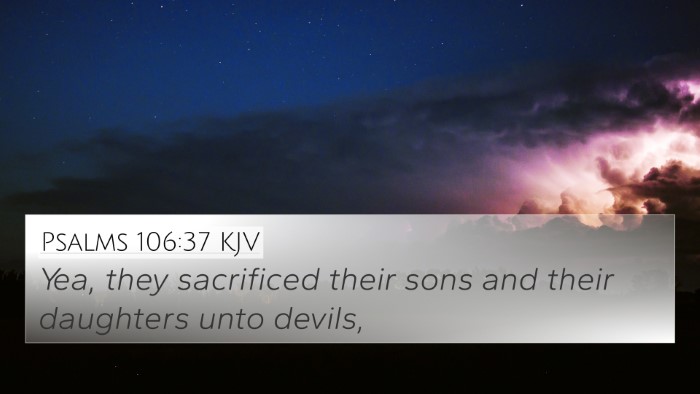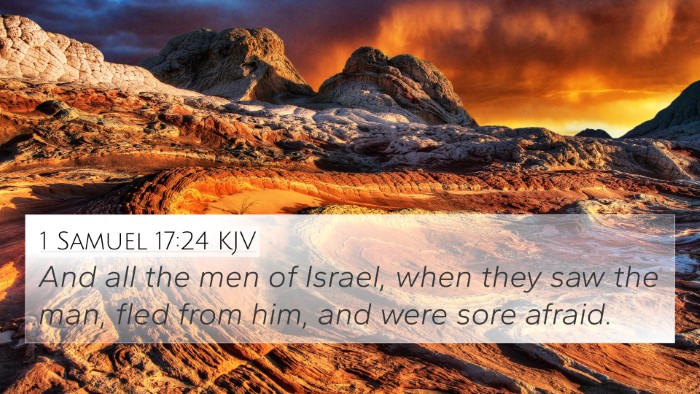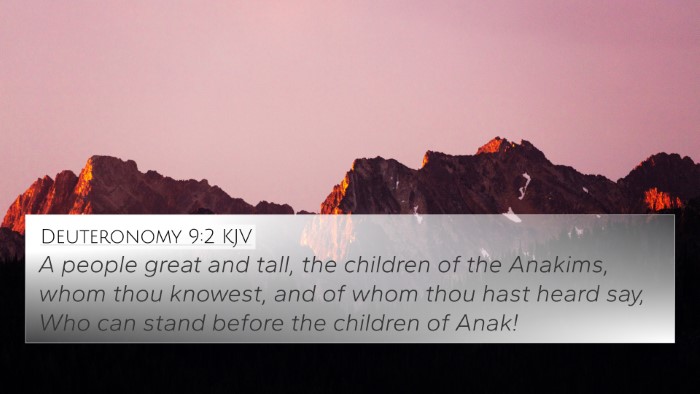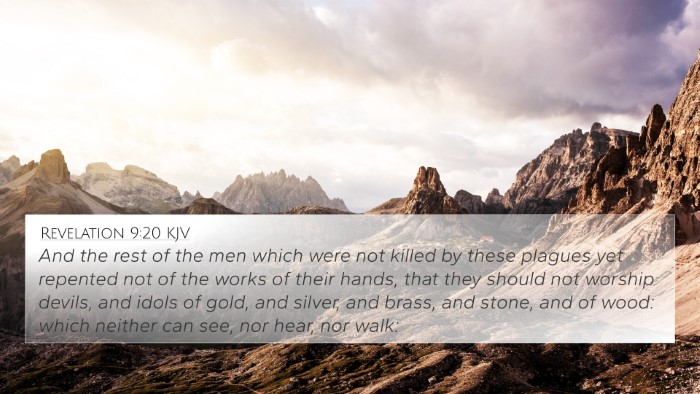Understanding Revelation 13:4
Revelation 13:4 states: "And they worshiped the dragon which gave power unto the beast: and they worshiped the beast, saying, Who is like unto the beast? who is able to make war with him?" This verse is rich in meaning and invites an in-depth biblical examination. Below, we will explore insights from reputable public domain commentaries including those by Matthew Henry, Albert Barnes, and Adam Clarke, as well as connections with other scripture to illuminate its meaning.
Verse Context and Analysis
The context of Revelation 13 reveals a vision given to John, focusing on the rise of the Antichrist (the beast) and the dragon (often identified as Satan) who empowers him. This deep symbolism represents the ultimate opposition to God and His people.
Commentary Insights
- Matthew Henry: Henry posits that the worship of the beast signifies a perverse allegiance to earthly power opposed to divine authority. The acknowledgment of the beast's power illustrates humanity's tendency to follow what is visible and immediate, rather than the spiritual and eternal.
- Albert Barnes: Barnes discusses the profound irony that humanity worships the beast, thereby rejecting the Creator. This highlights the theme of idolatry, where human beings gravitate towards what seems formidable—reflecting a broader truth about human nature's rejection of divine authority.
- Adam Clarke: Clarke elaborates on the symbolism of the dragon and the beast, noting their roles in the apocalyptic narrative. He highlights the question posed, "Who is like unto the beast?" as a blasphemous comparison to God, underscoring the pressure believers face in a world that prioritizes power over piety.
Thematic Connections
This verse connects to various biblical themes that deal with authority, power, and idolatry. Several other scripture references echo similar sentiments:
- Exodus 15:11: "Who is like unto thee, O LORD, among the gods?" - This verse poses a direct contrast to Revelation 13:4, signifying the exclusivity of God’s sovereignty.
- Isaiah 14:13-14: Describes the pride of the kingdom of Babylon, paralleling the arrogance seen in the worship of the beast.
- Daniel 7:25: Relates to the changes instituted by the beast and the persecution against the saints, showcasing the continuity of oppression.
- 1 John 5:19: "And we know that we are of God, and the whole world lieth in wickedness." This reflects the spiritual conflict depicted in Revelation.
- Matthew 24:24: Jesus' warning about false prophets mirrors the deceptions associated with the beast.
- Revelation 19:20: The ultimate fate of the beast is elaborated on, emphasizing God's final judgment.
- Philippians 2:9-10: The exaltation of Christ contrasts the rebellion represented by the beast, reaffirming God's rightful authority.
- Hebrews 11:6: Faith's necessity underscores the stark choice believers face against the allure of worldly power.
- Romans 1:25: Indicates the exchange of the truth of God for a lie, synonymous with the worship of the beast.
- 2 Thessalonians 2:4: Paul speaks of the man of sin sitting in the temple of God, further linking to the themes in Revelation 13.
Cross-Referencing and Thematic Analysis
Cross-referencing biblical texts enhances understanding and provides a richer interpretation of Revelation 13:4. Utilizing tools such as a Bible concordance or a Bible cross-reference guide can facilitate in-depth studies and reveal hidden connections across canonical texts.
This verse also illustrates a significant moment in Inter-Biblical dialogue, showing the direct relationship between themes of authority, idolatry, and spiritual warfare through both the Old and New Testaments. Recognizing the interplay between different scripture allows for a comparative Bible verse analysis that can deepen one’s faith and understanding of God’s Word.
When exploring the connections between Bible verses, it is important to consider how Revelation 13:4 complements broader themes of worship and obedience, thereby creating a thematic Bible verse connection to the message of resistance against worldly powers.
Conclusion
In conclusion, Revelation 13:4 serves as a powerful warning against idolatry and the allure of worldly power in opposition to God's sovereignty. Engaging with the insights provided by renowned commentaries and drawing parallels with other scripture enhances our understanding. For further study, consider using a Bible reference resource to explore this verse and its connections more profoundly. Reflecting on how this verse resonates with others will provide insight into the greater narrative of Scripture and strengthen your spiritual journey.
